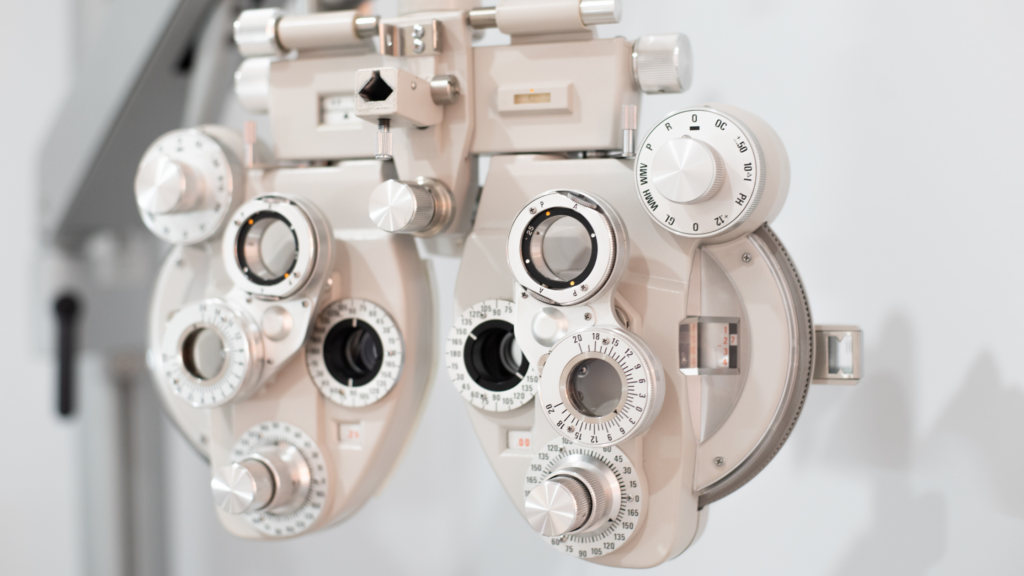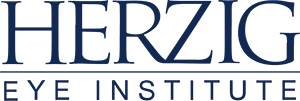Herzig Eye Institute in General Eye Health on May 27, 2022
By: Milad Modabber, MD, MSc, FRCSC, DABO and Sue Che, OD
Like going to the dentist, it’s important to maintain an annual visit to your optometrist. Even though in most cases, eye health does not require the same amount of maintenance as oral hygiene, it’s imperative to stay ahead of your vision needs, especially as you age. It is recommended to have an eye exam at least every two years for those who don’t need glasses or contacts. For people who do require a prescription (nearsightedness, farsightedness, or presbyopia), it is recommended to visit your optometrist annually.
Now, more than ever, an eye exam should be a priority. With the increase of screen time over the last couple years as a result of the pandemic, there are more instances of dry eye and other ocular issues. The pandemic has shown us the importance of staying on top of one’s eye health. Over the past couple years, many people missed their annual eye exam as they deemed it non-essential, and now their vision is suffering as a result.
3 reasons to get your annual eye exam

1. Get baseline medical information to better inform treatment plans as needed
The findings from an eye exam can help later on in life if any changes to your vision occur. With the advanced diagnostic technology available today, the scans performed during your exam are extremely precise and can serve as a valuable information resource as time goes on. These scans can identify even the smallest, most subtle change.
For example, if you have your first comprehensive eye exam at the age of 20 where a scan is completed, then return one year later for your annual eye exam where the same scan is done, any change to your eye would be shown year over year. Any change can then be monitored by your optometrist, and even inform a follow-up care plan. The more information you have, the better prepared you can be for the future. Another advantage of this knowledge is seeing just how quickly these changes are occurring, and then being able to get referred to a specialist, like an ophthalmologist, if needed.

2. An eye exam can help diagnose diseases or conditions at an early stage
The eyes can serve as a window into the body. They can show and indicate something happening internally without actually having to cut inside because often times, the earliest sign of something going wrong can be seen through, and in the eyes. Some of these conditions could be:
- High blood pressure
- Many vascular conditions
- Certain heart issues
- Eye conditions, including: cataracts, glaucoma, uveitis, diabetic retinopathy
If certain conditions are found in the eye like the ones listed above, your optometrist can suggest a treatment plan or refer you to an ophthalmologist if they think a surgical intervention is necessary, or for a second opinion. An annual follow-up could help identify the root cause what’s going on like dry eye syndrome or a worse, more serious condition.

3. Maintain healthy eyes, especially with the increase of screen time
Over the past two years especially, people have been spending more and more time looking at their digital devices and screens. Computer vision syndrome has developed as a result. Symptoms of this eye condition can include dry eye, eye strain, headaches, difficulty focusing, and more. Keep an eye out for these symptoms and check in with yourself to ask if you’re noticing more instances of dry eye. Be sure to take frequent breaks from screens!
Herzig Eye Institute’s Lifetime Commitment
All refractive procedures performed at Herzig Eye Institute are backed by our Lifetime Commitment. Sometimes our surgeons may suggest an enhancement to your original vision correction treatment, if deemed medically necessary. So long as you’ve kept up with your annual eye exams, this enhancement procedure would be performed at no extra cost.
After you have a procedure at Herzig Eye Institute, you will return to see your optometrist for follow-up care. If you do not have a primary eye doctor, we will happily refer you to one of our trusted optometric affiliates.
Before any procedure is performed at Herzig Eye Institute, a consultation is done, which includes: advanced diagnostic testing, a comprehensive eye exam performed by an eye doctor, and a meeting with one of our Refractive Consultants. You can also ask your optometrist to refer you to us.

Knowledge is power and information can turn into knowledge. Whether it’s knowing what age your parents or grandparents developed cataracts, noticing your eyes are dryer at the end of the day versus the beginning, or even if you’re aware someone in your family has glaucoma, you’re equipped with tools for the future. Sharing this information with your optometrist can lead to preventative measures and potentially an earlier diagnosis.




